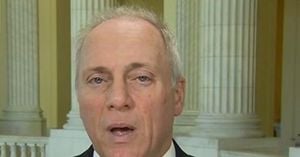Vice President-elect J.D. Vance, recently elected to the Senate from Ohio, has found himself at the center of controversy within his own party. While President Joe Biden’s nominees for the federal judiciary race through the Senate, Vance and several Republican colleagues have drawn sharp criticism for their absence during pivotal votes aimed at influencing the makeup of the courts. Republican senators have not been shy about expressing their grievances, citing frustration over missed opportunities to block judicial nominations.
The timing of this turmoil couldn’t be more delicate for Vance. With Democrats rushing to confirm more than a dozen judicial appointments before losing their majority next year, Republicans were left scrambling. The importance of these confirmations is underscored by the potential impact on policy and judicial philosophy for decades to come.
North Carolina Senator Thom Tillis voiced his exasperation, stating, “If we don’t show up, we lose.” He emphasized the necessity for party members to be present during this precarious time, as even minor attendance lapses could result in substantial losses. “We’ve got potentially dozens we could have shoved down our throat, except for us being here,” he lamented.
One significant nomination highlighting the stakes involved is Embry Kidd, who was recently confirmed to the 11th Circuit Court of Appeals by a narrow 49 to 45 vote. Republican Senators would have had the upper hand had all members been present, particularly if Democratic Senator John Fetterman had not participated.
Adding to the tensions, several Republican senators, including Vance, skipped out on key votes where nominations were decided. The absence of these senators left some party members feeling betrayed. Among them was Louisiana Senator John Kennedy, who didn’t mince words when he said there was “a lot of frustration” surrounding their no-shows. Kennedy's sentiment reflects the broader concern within the party environment about how absence translates to lost opportunities.
Comparatively, Vance’s absence has often been portrayed as part of his effort to focus on more pressing priorities within the administration. When pressed about his schedule, he acknowledged meeting with Trump to discuss nominees for key positions within the government. “I tend to think it’s more important to get an FBI director who will dismantle the deep state than it is for Republicans to lose a vote 49–46 rather than 49–45,” Vance asserted.
Still, the frustration is palpable. Republican Senators like Shelley Moore Capito have called for unity and engagement from all members, expressing the urgency of being present and functional within the party. “If we’re going to be effective, we’ve got to show up, and I think that's the frustration for those of us who did show up,” she explained during one of the encounters between party members. Her comments resonate deeply within the current scenario, where each vote carries significant weight.
Meanwhile, many speculate about how this conflict might color Vance’s political future. Acquainted with the narratives surrounding judicial nominations, he needs to carefully navigate party expectations and pressures. His position holds meaning not only within the Senate but also within the larger Republican agenda championed by Trump.
Importantly, Vance is now at the forefront of managing appointments for Trump’s cabinet picks. This new dimension adds to the pressure placed upon him to reconcile the GOP’s desires with maintaining relationships among party members. While tasked with confirming controversial nominees like Linda McMahon for the Department of Education, Vance's ability to maneuver through opposition will test his political mettle.
Essentially, the criticisms faced have triggered discussions among senators about forming more cohesive strategies moving forward. Some senators caution against internal squabbling when external pressures present themselves, emphasizing the need for voting integrity and unity to avoid being outmaneuvered by Democrats eager to fill judicial vacancies.
This newfound role as vice president-elect places Vance at the intersection of crisis management and leadership within the Republican Party, amid rising tensions around judicial positioning. The dynamics between court confirmations and the overall political relationship within the party will critically influence the strategies moving forward.
For Vance, the challenge remains not just about performing politically but also about unifying his party under shared goals, especially when the ramifications of judicial confirmations linger long past the lifecycle of current administrations.
From his emergence as the new face of the Ohio GOP to his role as VP-elect, the stakes couldn't be higher for J.D. Vance. The upcoming months will reveal how well he can balance his task of leading the party's agenda and managing the complex web of relationships and expectations within the Republican ranks.



